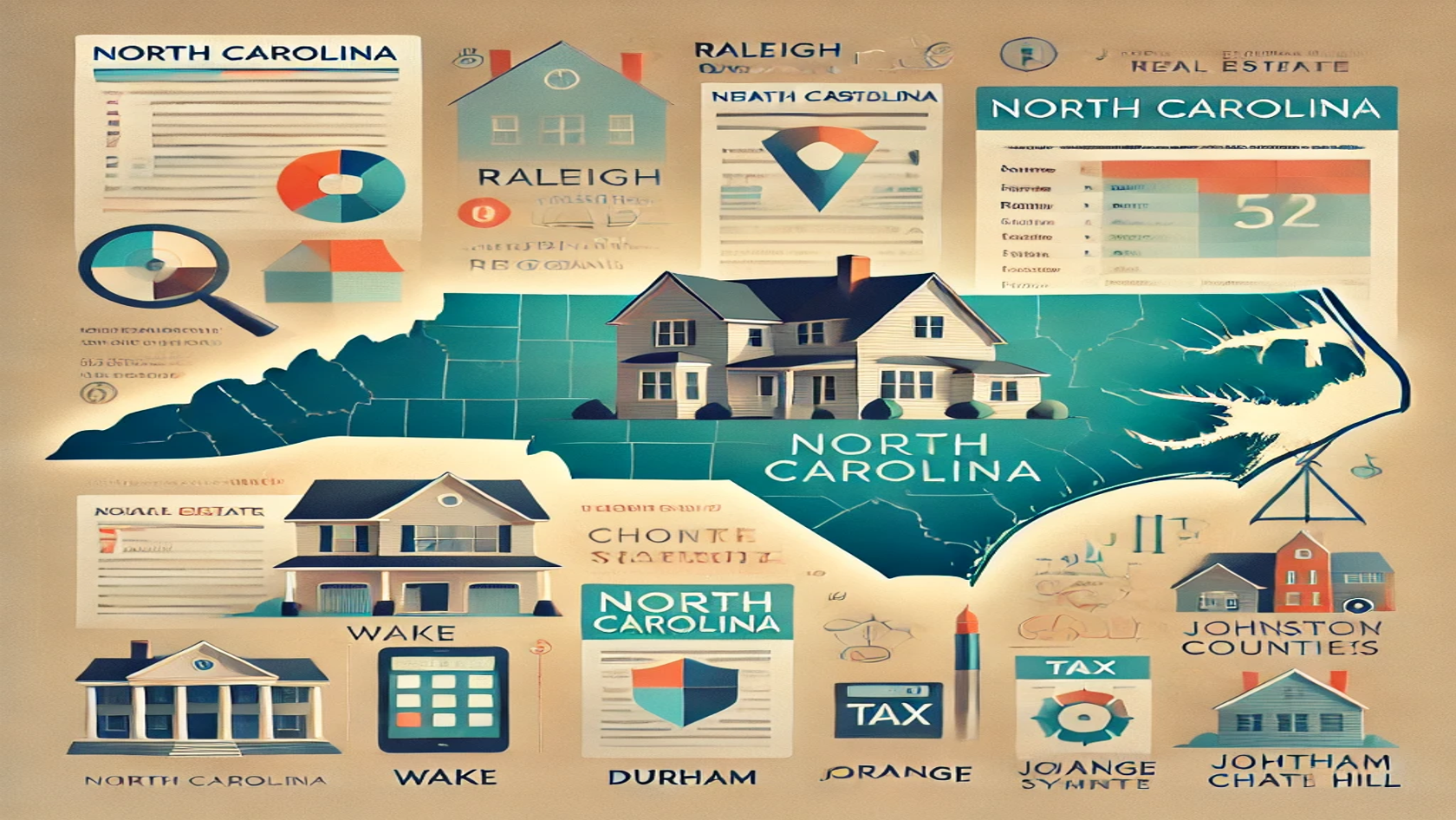If you own property in North Carolina—especially in the Triangle region—it’s important to understand how property values are reappraised and how that impacts your property taxes. Whether you’re planning to sell soon or just want to stay ahead of your home’s financial outlook, reappraisals can influence everything from equity to tax bills. Here’s what homeowners in Wake, Johnston, Durham, Orange, and Chatham Counties need to know about property reappraisals.
What Is a Property Reappraisal?
In North Carolina, property reappraisal (sometimes called a reassessment or revaluation depending on the county) is the process of updating the tax value of real estate to reflect current market conditions. Unlike an appraisal done during a home sale or refinance, reappraisals are conducted by county tax assessors to ensure property taxes are distributed fairly based on a property’s market value. North Carolina law requires all counties to reappraise real property every eight years.
How Often Are Properties Reappraised in North Carolina?
State law requires counties to conduct reappraisals at least once every eight years, but many counties in the Triangle opt to do them more frequently—often every four years—to keep values in line with the market and minimize large jumps in tax assessments.
Reappraisal Schedules by County
Here’s a quick overview of how it works in the counties I serve most often:
Wake County
Reappraisal Frequency: Every 4 years
Last Reappraisal: January 2024
Next Reappraisal: January 2027
In March 2025 it was announced that The Wake County Board of Commissioners approved a transition from a four-year revaluation cycle. The next revaluation will be effective January 1, 2027, and then future revaluations will be effective every two years. The first revaluation on a two-year cycle will be effective January 1, 2029. The County has chosen a gradual transition to allow property owners to adapt to this new approach.
Johnston County
Reappraisal Frequency: At least every 8 years (Prior reappraisal to most recent effort was in 2019)
Last Reappraisal: January 2025
Next Reappraisal: Not yet scheduled
Rapid growth in Johnston County means property values are rising fast—reappraisals help the county keep up with these changes.
Durham County
Reappraisal Frequency: At least every 8 years (Prior reappraisal to most recent effort was in 2019)
Last Reappraisal: January 2025
Next Reappraisal: Scheduled for 2029
Durham County updates values based on comprehensive neighborhood and market data, aiming for fairness and consistency.
Orange County
Reappraisal Frequency: Every 4 years
Last Reappraisal: January 2025
Next Reappraisal: Scheduled for 2029
Orange County has a diverse mix of rural and urban areas, which can lead to varying value shifts across communities.
Chatham County
Reappraisal Frequency: Every 4 years
Last Reappraisal: January 2025
Next Reappraisal: Scheduled for 2029
With major growth around Pittsboro and near the Chatham Park development, values here are climbing steadily.
Why Does This Matter to You as a Homeowner or Seller?
Reappraisals can significantly affect your property taxes. If your property’s assessed value increases, your tax bill may go up—even if the tax rate stays the same or decreases. This can influence decisions around:
Selling your home – A higher assessed value may reflect strong equity gains.
Budgeting as a homeowner – Planning for changes in annual tax obligations.
Appealing your value – If you believe your reappraisal is too high, you have the right to appeal. Each county offers a process for doing so—usually within 30 days of receiving your new valuation.
Tips for Triangle Homeowners
- Know your timeline. Keep track of your county’s reappraisal schedule to avoid surprises.
- Check your property record. Make sure the county’s data about your home is accurate (square footage, features, etc.).
- Watch the market. If home prices in your area are surging, expect your tax value to follow.
- Consider your equity. Reappraisals often reflect rising market values, which is great news if you’re thinking about selling.
- Ask for help. If you’re unsure how a reappraisal impacts your home’s market value or want guidance on appealing your tax value, reach out—I’m happy to help.
Final Thoughts
The Triangle continues to be one of the fastest-growing regions in North Carolina, and rising property values are a natural side effect. Staying informed about reappraisal cycles and county-specific rules ensures you can plan smartly—whether you’re living in your forever home or getting ready to list.
If you’re curious about your home’s market value versus its tax value, or if you’re thinking about buying or selling in Wake, Johnston, Durham, Orange, or Chatham County, reach out to me via my email. I’d be glad to provide a comparative market analysis or answer any questions you have.
Thanks for reading!
Brandon Yopp


